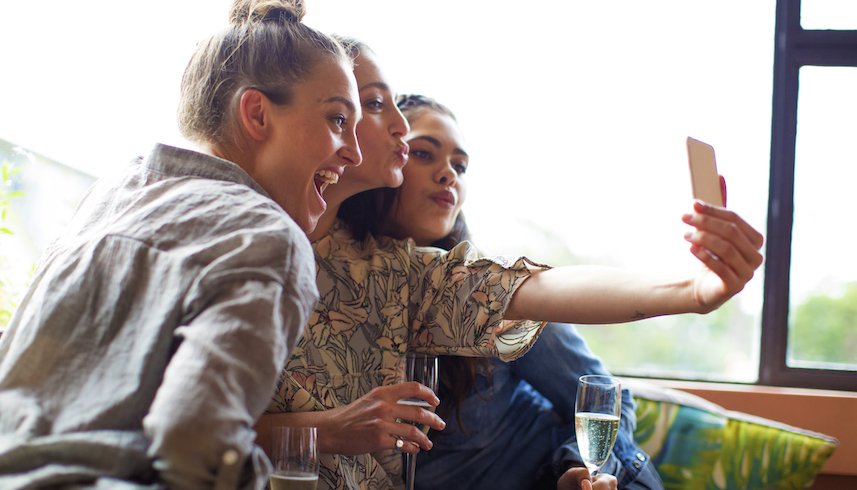While you might find scrolling through your Instagram feed a soothing, mindless pastime (pretty pictures, what’s the harm?) — compared to Twitter, for example, which bombards you with politics and bad takes — it turns out the app of sunsets and selfies is majorly messing with your head. Selena Gomez was onto something!
According to a new study from England’s Royal Society for Public Health in partnership with the advocacy group Youth Health Movement, Instagram ranked as the worst social media platform for mental health among users in their teens and early 20s.
The report, called #StatusofMind, compiled data from a 2017 survey of nearly 1,500 young people ages 14-24 across the U.K., in which they were asked to score how various social media platforms make them feel across 14 mental health and wellbeing subcategories, including FOMO, body image, anxiety, depression and bullying.
The results: Youtube ranked as the most positive, followed by Twitter, Facebook, Snapchat — and then Insta.
We have a few questions. Isn’t Twitter hands-down the most anxiety-inducing? Are younger folks less affected by the onslaught of apocalyptic news than they are vulnerable to the FOMO of spotting a pic a barbecue they weren’t invited to? Also: Do people still watch Youtube for anything besides trailers, music videos and makeup tutorials? (Or, hey, maybe that’s why it’s so posi.)
The organizations hope to use the results of the study to make social media better, essentially. (They are not as cynical as we are.) They’re issuing a call to action with suggestions for how government, social media companies and policymakers might “promote the positive aspects of social media for young people, whilst mitigating the potential negatives,” according to the release. (Ahh, British speak.)
For example, seven out of 10 young people surveyed support the addition of a “pop-up heavy usage warning on social media,” which would send users an alert that they maybe need to cool it. That sounds reasonable, and potentially helpful, to us.
However, four out of five back the suggestion that social media platforms identify users that might be suffering from mental health issues, based on their pictures and captions, which, frankly, sounds like a serious violation of privacy.
And more than two-thirds support the idea that platforms “highlight when photos of people have been digitally manipulated.” Which, while it’s helpful to remember that the photos are heavily curated and far from an accurate representation of the person IRL, this also sounds like a violation of privacy. Also: Wouldn’t this completely undermine the Instagram filter feature? Don’t think they’d go for that.
“Socializing from behind a screen can also be uniquely isolating, obscuring mental health challenges even more than usual,” Laci Green, a 27-year-old professional health YouTuber with 1.5 million subscribers, said in a statement. “As the first generation of social media users become adults, it is important that we lay the groundwork now to minimize potential harm and shape a digital future that is healthy and thriving.” Sure. But girl, aren’t you part of the problem?
At the end of the day, the social media experience is subjective, and we’d all do well to pay closer attention to how it’s making us feel. If your chest tightens as you scroll past a photo your ex posted with his new girlfriend, honor that feeling by maybe… unfollowing him. If your frenemies’ glam selfies are making you feel inferior, remind yourself that it probably took her 10 tries and multiple filters before she hit post. And if it’s too much, do as Selena and just delete your account.
























